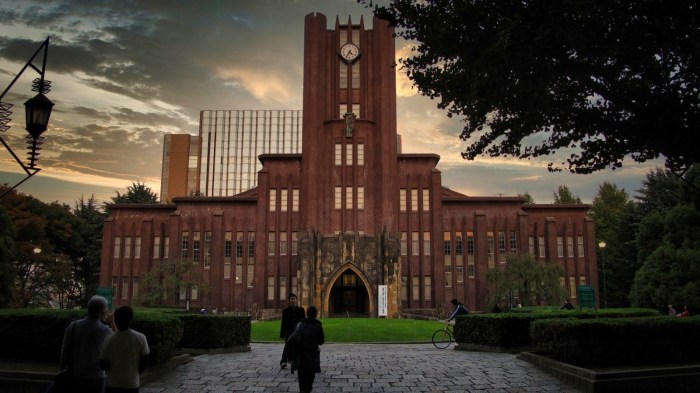- A bachelor’s degree or equivalent qualification from an accredited institution.
- A strong academic record with a minimum GPA requirement (often 3.0 or higher).
- Proficiency in English or Japanese, as most programs are taught in one of these languages.
- Adequate financial resources to cover tuition, living expenses, and other costs.
Application Process, Masters degree japan
The application process generally involves the following steps:
- Check Deadlines: Deadlines vary by university and program, but typically fall between November and February for the following academic year.
- Gather Required Documents: Prepare official transcripts, proof of language proficiency, a statement of purpose, letters of recommendation, and other required materials.
- Submit Application: Submit the application through the university’s online portal or via mail.
- Entrance Exam: Some universities require international students to take an entrance exam, such as the Examination for Japanese University Admission for International Students (EJU).
- Interview: Shortlisted candidates may be invited for an interview with the university.
- Decision: Universities typically notify applicants of their decision within a few months of the application deadline.
Tips for Strengthening Your Application
To increase your chances of success, consider these tips:
- Research Programs Thoroughly: Identify programs that align with your academic interests and career goals.
- Craft a Compelling Statement of Purpose: Clearly articulate your motivations for pursuing a master’s degree in Japan and how it aligns with your long-term aspirations.
- Secure Strong Letters of Recommendation: Choose recommenders who can attest to your academic abilities, research potential, and character.
- Prepare for the Entrance Exam: If required, dedicate time to studying for the EJU or other relevant exams.
- Attend Information Sessions: Reach out to the university’s admissions office or attend virtual/in-person information sessions to gain insights into the application process and program requirements.
Cost and Funding

The cost of pursuing a master’s degree in Japan varies depending on the university, program, and duration of study. Generally, international students can expect to pay between 500,000 to 1,500,000 yen (approximately $4,500 to $13,500) per year in tuition fees. In addition to tuition, students should also budget for living expenses such as accommodation, food, transportation, and other personal expenses, which can range from 800,000 to 1,200,000 yen (approximately $7,200 to $10,800) per year.
Scholarships and Financial Aid
Fortunately, there are several scholarships and financial aid options available to international students pursuing a master’s degree in Japan. The Japanese government offers the Monbukagakusho (MEXT) scholarship, which provides full tuition coverage, a monthly stipend, and other benefits. Other scholarships are available from Japanese universities, private organizations, and foreign governments. International students may also be eligible for financial aid from their home countries or international organizations.
Job Prospects and Career Opportunities
Graduates with master’s degrees from Japan have excellent job prospects and career opportunities in a wide range of industries and sectors. The demand for highly skilled professionals with specialized knowledge and expertise is increasing in Japan, driven by technological advancements, economic growth, and globalization.
Industries and Sectors with High Demand
Industries and sectors with a high demand for master’s degree holders in Japan include:
- Information technology (IT)
- Finance and banking
- Manufacturing
- Healthcare
- Education
- Research and development
Career Opportunities
Graduates with master’s degrees in Japan can pursue various career opportunities, including:
- Management and leadership positions
- Technical and specialized roles
- Research and development
- Teaching and academia
Salaries and Benefits
Salaries for graduates with master’s degrees in Japan vary depending on the industry, sector, and experience. However, on average, master’s degree holders can expect to earn higher salaries than those with only a bachelor’s degree.
In addition to competitive salaries, graduates with master’s degrees from Japan may also enjoy other benefits, such as:
- Health insurance
- Pension plans
- Paid time off
- Opportunities for professional development
Living and Culture: Masters Degree Japan
Japan offers a unique blend of tradition and modernity, providing international students with an enriching cultural experience. However, it’s crucial to be aware of the potential cultural differences and challenges to ensure a smooth transition.





